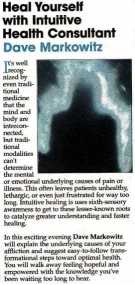The Learning Annex is a privately owned continuing-education school in New York. As a resident of New York City, I can testify to its success – its kiosks of free course catalogs are on nearly every street corner in Manhattan. It was founded in 1980 by Bill Zanker, who sold the company in 1991 and then repurchased it and resumed ownership in 2002. The 2007 Inc. 500, a list of the nation’s fastest-growing private companies, ranked the Learning Annex at number 346 and said that it makes over $100 million in revenue in each year.
On my lunch break last week, I picked up a Learning Annex catalog and flipped through it. Some of its offered courses are about professional software, how to found a small business, how to interview for a job, or other serious topics. Others are about dating, diet, or other self-help topics. But a great many of them are straight-up pseudoscience. A large number of Learning Annex classes promise to teach students how to develop their psychic powers, how to get rich or find the perfect spouse using the “Law of Attraction” (the Law of Attraction is a very popular course topic), how to communicate with dead relatives, how to “reverse the aging process”, how to heal using qi gong, how to improve your life with neurolinguistic programming (for the jaw-dropping price of $2500), and many more.
As a private business, the Learning Annex profits by people signing up to take its courses, so they have little reason to turn away anyone who offers to teach a class. This no doubt accounts for much of the bottom-feeding superstition in these pages. There are many self-deluded people who are eager to share their credulity with the world, and of course it’s much easier to claim to be a teacher of psychic powers than to be a teacher of Photoshop. One requires actual skill and education, while the other thrives on a lack of any discernible qualifications or results. The mantle of “psychic teacher” can be worn by any charlatan; if they’ve published a book or run a website, so much the better.
But it goes far beyond that. The Learning Annex, far from passively putting up with these miracle-mongers, actively works to promote them and boasts about their presence. The first page of its catalogue, as well as a later full-page ad, prominently advertises a webcast by noted psychic failure and free-speech enemy Sylvia Browne. The Browne webcast is presented as a tie-in for the launch of their own new pseudoscience-themed site, SpiritNow.com, whose index page is a gleeful mishmash of astrology, angels, psychics and feng shui. The back page of the catalogue, meanwhile, advertises a course taught by TV psychic Char Margolis.
Purely on an economic level, it’s hard to fault the Learning Annex. No doubt they, like much of the media, have found that peddling pseudoscience is a great way to rake in the bucks. Marketing to skeptics is an endeavor that some might say suffers from an intrinsic contradiction. But the credulous are huge in number and eager to be exploited.
But the problem with pandering to superstition is that, inevitably, it degrades one’s seriousness and credibility. The more this nonsense infects its pages, the more the Learning Annex will lose what real educators it has. After all, if you’re a genuine, credible expert on some important topic, why make yourself a laughingstock by sharing space with fly-by-night psychics, people who talk to angels, and hawkers of the latest get-rich-quick scams? Pseudoscience, like water, seeks its own level. Before long, if they continue at this pace, this is all the Learning Annex will have left – just one more outlet for every brand of nonsense our society has to offer.
Every educational institution has to confront the fact, at some point, that real teaching is a difficult, expensive business. It’s certainly possible to succeed doing it legitimately, but the temptation will always be there to lower the standards, throw open the gates, and make the easy money from people who flock to have their superstitions catered to and their prejudices reinforced. “What’s the harm?” is the usual rationalization – a rhetorical question which can be answered by noting that the harm, though subtle at first, is very real indeed. It consists in sending the message that pseudoscience is a legitimate area of study, worthy of being put on a par with genuine science. Inevitably, science suffers from that equation.


